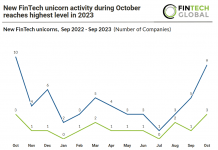The Consumer Financial Protection Bureau (CFPB) recently disclosed its report to Congress on the consumer credit card market for 2022.
Last year saw credit card companies charging consumers an unprecedented sum of over $105bn in interest and a staggering $25bn in fees. Such a scenario has led the total outstanding credit card debt to breach the $1tn mark for the first time since the inception of CFPB’s data collection.
CFPB Director Rohit Chopra voiced his concerns, stating, “Last year, Americans paid $130 billion in interest and fees on their credit cards. With credit card debt crossing the trillion dollar mark, we will be working to prevent bait-and-switch tactics when it comes to rewards and to increase refinancing activity so consumers can get lower rates.”
As the CFPB’s sixth report, it highlighted a plethora of trends, including the enduring high profits of major credit card companies, annual percentage rates (APRs) soaring well above the credit offering cost, and consumers facing an unprecedented $130bn in interest and fees.
The report further noted that the credit card debt had reached an all-time high, surpassing $1tn by the end of 2022, with annual credit card expenditure surging to $3.2tn.
The data presented also shed light on an alarming increase in the number of consumers ensnared in a cycle of debt, with many falling into “persistent debt”.
A notable shift towards digital communication has been observed, with an overwhelming majority, nearly 80%, of cardholders registering on their card’s mobile application. Alongside this, credit card firms and debt collectors are making a gradual shift from traditional communication methods, leaning more towards emails and text messages.
Keep up with all the latest FinTech news here.
Copyright © 2023 FinTech Global










